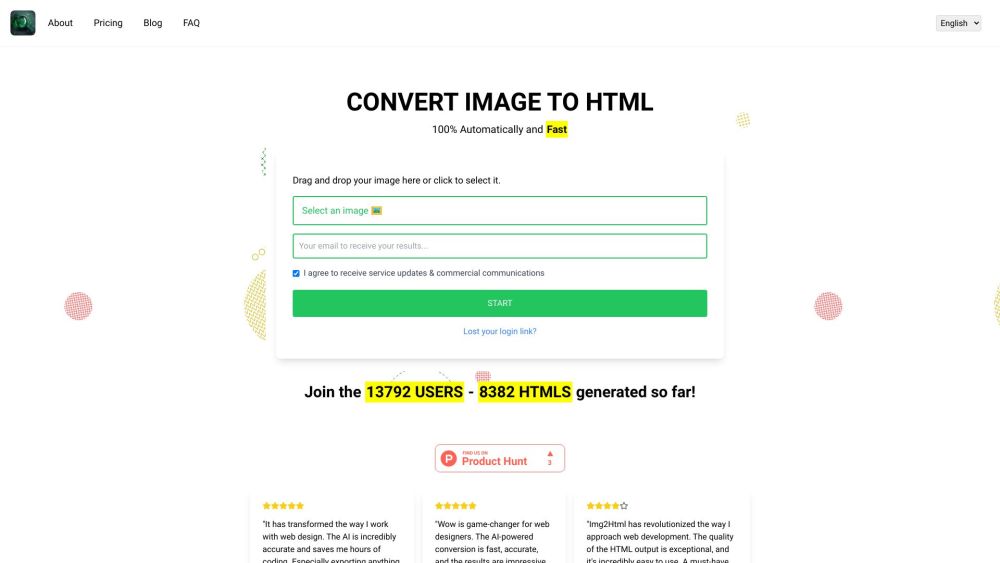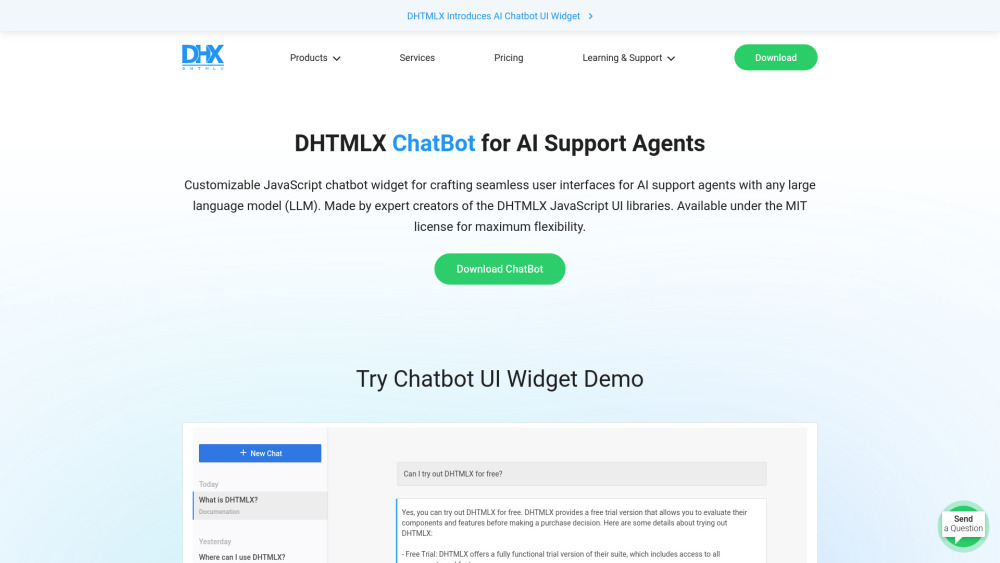Google's GenAI Undergoing Privacy Risk Assessment Scrutiny in Europe
Most people like

Transform your images into responsive HTML with our advanced AI-powered image to HTML converter. This innovative tool streamlines the process, allowing web developers and designers to effortlessly convert visual content into high-quality, customizable HTML code. Enhance your website's efficiency and aesthetics by leveraging cutting-edge technology designed to save you time while delivering exceptional results. Perfect for anyone seeking to optimize web design workflows, our converter is user-friendly and reliable. Start converting your images today!

Affordable Cloud GPU Rental Platform for Optimal Performance
In today's digital landscape, the demand for high-performance computing resources has skyrocketed, making cloud GPU rentals an attractive option for businesses and developers. Our platform offers an economical solution for accessing powerful GPU capabilities, enabling you to enhance your projects without the hefty price tag typically associated with traditional hardware. Experience seamless scalability and flexibility with our low-cost cloud GPU rentals, designed to cater to your specific needs and boost your productivity.

Introducing an AI-powered tool designed to craft content that perfectly captures your brand voice. Whether you're aiming to engage your audience or enhance your brand identity, this innovative solution transforms your ideas into compelling narratives that resonate with your target market. Elevate your content strategy today with cutting-edge technology tailored specifically for your needs.

Unlock seamless customer interactions with our innovative Chatbot Widget designed specifically for AI support agents. This powerful tool enhances user experience by providing instant assistance, resolving queries, and improving overall engagement. Transform your customer service with efficient AI-driven support that elevates satisfaction while streamlining operations. Embrace the future of customer communication and discover how our Chatbot Widget can revolutionize your support strategy today!
Find AI tools in YBX
Related Articles
Refresh Articles
